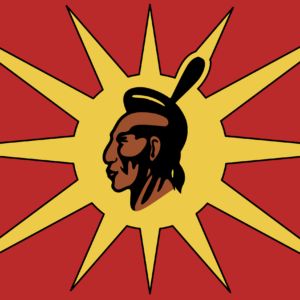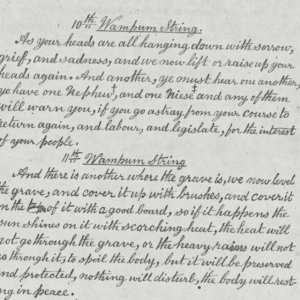For 200 years in ancient rome, Christianity was a rogue religion, punishable by death. Early followers of Christ spent so much time dying for their faith they were not prepared for the mass influx of converts when the Roman Empire adopted it as the official state religion in 325 A.D. After two centuries of persecution, Constantine the Great admitted defeat and (practically) said well if you can’t beat’em, join’em.
Onkwehonwe people of this continent have suffered greatly when it comes to persecution for their rights to practice their ancient ceremonies. Missionaries and residential schools targeted our spiritual beliefs and practices for destruction. After 200 years of persecution here in North America it should be obvious to the imperial powers of Canada and USA that we are not giving up and we are not going anywhere either. Despite New Rome’s oppression, our people still remember our version of the good message that was given to us by the Creator through the Peacemaker.
If you look at the dictionary definition of the word ‘assimilated’ a few things become clear. Firstly, it is impossible for the host body (the Onkwehonwe) to be assimilated into anything except themselves. Trying to assimilate a host is a fool’s errand.
The only reason it almost worked here in North America is because 90-120 million Onkwehonwe people died from smallpox and other diseases that we had no immunity to, according to researcher Henry F. Dobyns. Coming to terms with a new reality of rapid demographic growth and expansion, the Onkwehonwe people need to prepare for a mass influx of converts who wish to be assimilated into our culture.
It already happened once before. Settlers defecting the colony to join the Powhatan Confederacy was a real problem in Jamestown Virginia, circa 1608 A.D. The history books used to say the settlers left camp and joined the “Indians” because of starvation but an objective look at history shows that it was more than that. They wanted true freedom. So how do you feel about a so called “non-native” speaking fluently in the Kanienkehaka (Mohawk) language? What about a blonde haired, blue eyed immigrant who has spent 30 years researching the treaties and knows every last detail about them? How do we respond to Canadians who have heard our truths, understand their responsibilities, and take us seriously when we have explained our ways to them? Are we ready to deal with all of that? I imagine it is the same creepy feeling the Christians had in the year 326 A.D. as they watched their Roman oppressors praising Jesus in public.
It doesn’t feel right but it’s difficult to explain why. Fast forward to 2014 our European immigrants are slowly being assimilated by the Onkwehonwe host body but we find them very hard to ingest. Is it simply a matter of time, or something more fundamental?
Jonathan Garlow
Publisher






